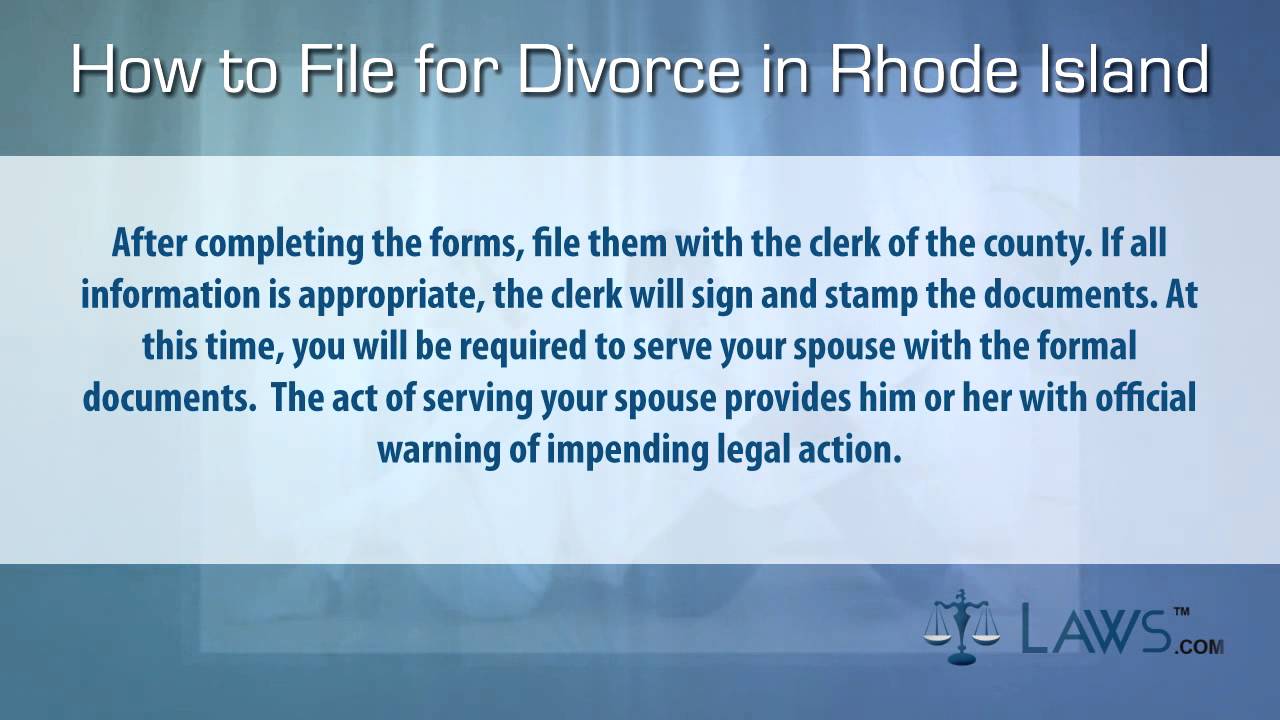Introduction to filing for divorce in Rhode Island
Filing for divorce can be a complex and emotionally challenging process. However, understanding the step-by-step process can help streamline the procedure and make it more manageable. In Rhode Island, spouses must follow specific guidelines and requirements to initiate a divorce. This article will outline the key steps involved in filing for divorce in Rhode Island and provide useful information to navigate through the process smoothly.
Understanding the residency requirements
Before filing for divorce in Rhode Island, it is vital to meet the state’s residency requirements. Either spouse must be a resident of Rhode Island at the time of filing. The residency requirement mandates that the spouse filing for divorce must have lived in Rhode Island for at least one year before initiating the divorce proceedings.
Gathering necessary documents for the divorce
To file for divorce in Rhode Island, certain documents need to be collected and prepared. These documents typically include marriage certificates, financial records, bank statements, tax returns, and any other relevant documents related to assets, liabilities, and income. These documents will play a crucial role in determining property division, alimony, child custody, and support matters.
Filing the initial divorce papers with the court
Once all the required documents are collected, the next step is to file the initial divorce papers with the court. The spouse initiating the divorce, known as the "plaintiff," must complete a "Complaint for Divorce" form and submit it to the Family Court Clerk’s Office in the county where either spouse resides. Along with the complaint, a filing fee must be paid unless the plaintiff qualifies for a fee waiver based on their financial circumstances.
Serving divorce papers to the spouse
After filing the initial divorce papers, it is necessary to serve the divorce papers to the other spouse, known as the "defendant." Rhode Island law requires "personal service," meaning the defendant must be personally handed the divorce papers by a court-approved individual. The defendant must receive the divorce papers within 20 days of being served.
Responding to the divorce petition
Once the defendant receives the divorce papers, they have the opportunity to respond to the divorce petition. The defendant can either agree with the terms stated in the complaint or file an "Answer and Counterclaim," stating their own requests and terms for the divorce. It is important to respond to the divorce petition within 20 days to avoid a default judgment.
Negotiating a settlement agreement
Both parties may attempt to negotiate a settlement agreement to resolve any disputes related to property division, alimony, child custody, and support matters. This agreement can be reached through direct discussions or with the help of attorneys or mediators. If an agreement is reached, it should be put into writing and submitted to the court for approval.
Attending court hearings and mediation sessions
In some cases, court hearings and mediation sessions may be required to resolve outstanding issues. During these proceedings, both parties and their attorneys present their arguments and evidence to the court. Mediation sessions provide an opportunity for the spouses to work with a neutral third party to reach mutually agreeable solutions. These sessions aim to promote communication and facilitate compromise.
Finalizing the divorce decree
Once all issues are resolved and agreements are reached, a final hearing is scheduled. During this hearing, the court reviews the settlement agreement and ensures that it complies with Rhode Island laws. If everything is satisfactory, the court will issue a final divorce decree, officially ending the marriage.
Handling child custody and support matters
Child custody and support matters are of utmost importance during divorce proceedings. Rhode Island courts prioritize the best interests of the child when making custody and support decisions. The court may consider factors such as the child’s preferences, the parents’ ability to care for the child, and any history of abuse or neglect when determining custody arrangements and child support amounts.
Dealing with alimony and property division
Rhode Island follows the principle of equitable distribution when dividing marital property and debts. This means that the court aims to divide assets and debts fairly, considering factors such as the length of the marriage, each spouse’s contributions, and their future needs. The court also has the authority to award alimony to one spouse if it is deemed necessary to maintain their standard of living after the divorce.
Seeking legal assistance for a smooth divorce process
Navigating the divorce process can be complex, emotional, and legally intricate. It is highly recommended to seek the guidance and expertise of an experienced family law attorney. A knowledgeable attorney can provide valuable advice, help navigate the legal system, and ensure that your rights and interests are protected throughout the divorce proceedings. Hiring an attorney can help facilitate a smoother and less stressful divorce process.





